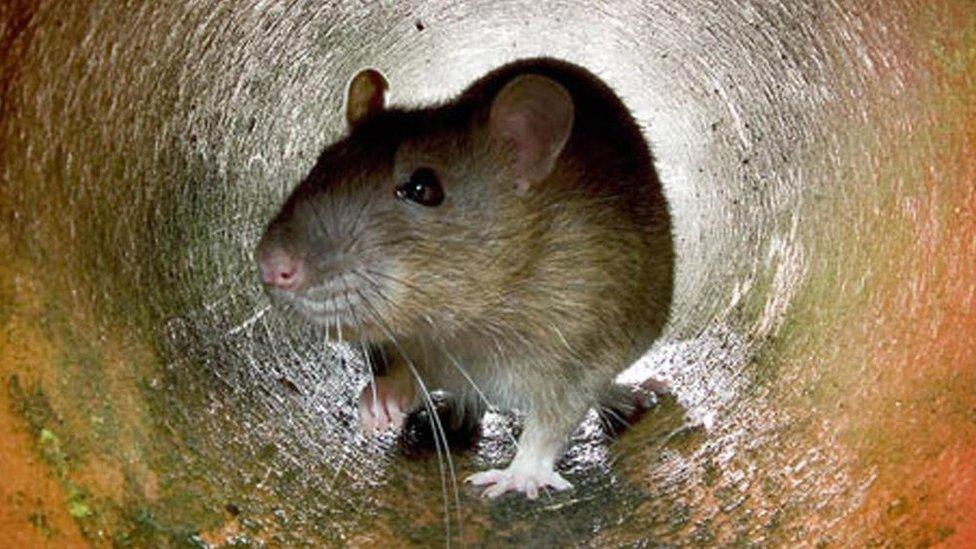Coronavirus: Why more rats are being spotted during quarantine
- Published
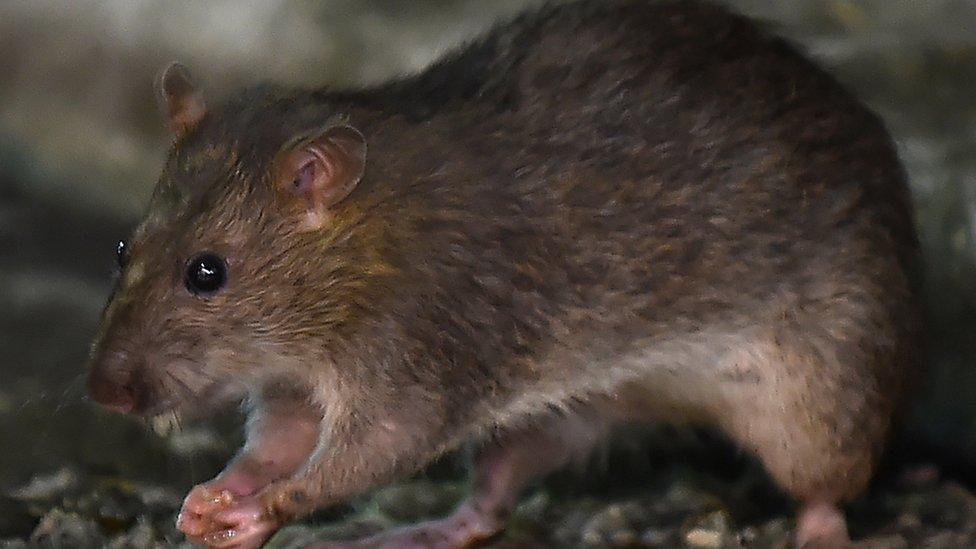
Robert Corrigan calls rats "masters of adaptation"
The closure of restaurants and the retreat by humans indoors is having an effect on the eating habits and behaviour of rats, say experts.
Late last month, the French Quarter in New Orleans had new swarms of visitors wandering its famous streets.
Not long after the coronavirus closed bars and restaurants in the Louisiana city, rats were coming out of hiding.
That more rodents were being spotted comes as no surprise to renowned urban rodentologist Robert Corrigan.
"When you have a colony of rats on a block that has been depending on tourists littering and lots of trash put out at night - it could be DC, it could be New York - anyplace where rats have been depending the easy handouts, and that disappears, then they don't know what to do," he says.
As Claudia Riegel, with the New Orleans pest control board, told journalists: "These rats are hungry."
Humans around the world are changing their behaviours due to the threat of the coronavirus pandemic.
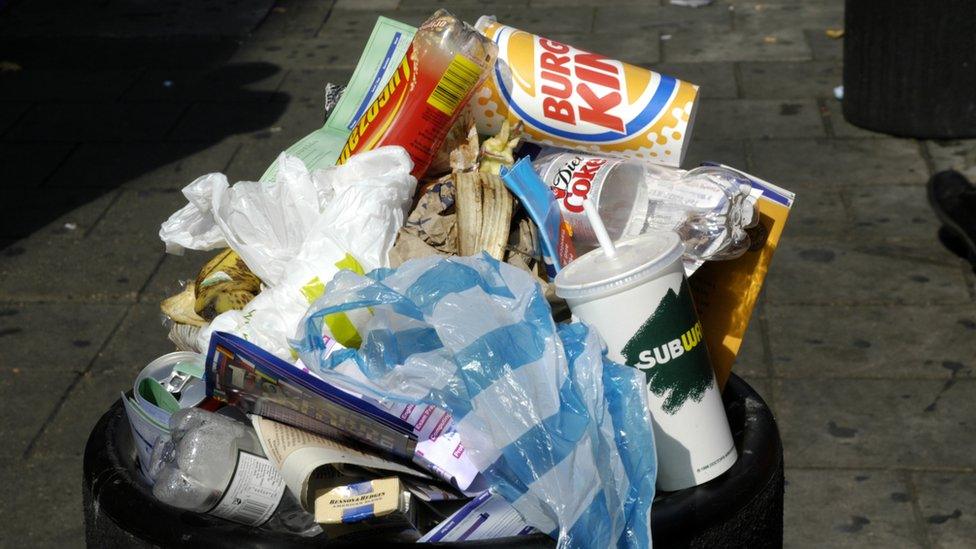
There are fewer overflowing trash receptacles amid social isolation measures
In some places, quarantine means rubbish that rats depend on is no longer available, and so they also adapt.
Dr Corrigan, who has an office in Lower Manhattan, says he's had messages from friends in the city who have seen rats in new areas and at odd hours for the usually nocturnal animals.
Others haven't seen any change in their local rat habits. Those colonies might feed on household waste, of which there is still plenty, and not restaurant rubbish.
In the UK, the National Pest Technicians Association warned this month that "the closure of schools, pubs, restaurants, hotels, tourist attractions and other public places to enforce social distancing will have unintended consequences".
Allow X content?
This article contains content provided by X. We ask for your permission before anything is loaded, as they may be using cookies and other technologies. You may want to read X’s cookie policy, external and privacy policy, external before accepting. To view this content choose ‘accept and continue’.

If there is food available, pest populations could thrive in empty buildings and become emboldened by the absence of people - or pests will go out in search of food, it said.
'Masters of adaptation'
Hungry rats "can wander quite a distance and end up in a different neighbourhood completely that had no rats prior", Dr Corrigan told the BBC.
They are "formidable mammals" very good at sniffing out sources of food, and their powerful teeth can make short work of a barriers like doors, plastics, or fabrics.
"They're global, they're everywhere, and they didn't get to be completely global if they weren't very skilled at being masters of adaptation," he says.
But seeing more rats around doesn't mean cities will be overrun.
In fact, Dr Corrigan says now is the perfect time to bring in control techniques and New Orleans officials said they are bringing in extra measures to control the city's robust rat population.
Rats with empty bellies will be more likely to take food from baited traps.

New Orleans has seen a rise in rat spotting as bars and restaurants close
The rodentologist also tells people that "sanitation is pest control" - without food, the rats "turn on themselves and they will control their own numbers".
Cannibalism is very pervasive in stressed colonies.
"These rats will completely eat every scrap of meat off the victim's bones," says Dr Corrigan.
Why rats are unwanted house guests
Wandering, hungry rats can still wreak havoc, causing damage in homes and spreading disease.
"If you don't check them with those [pest control] tools, they can be the ones that end up inside somebody's home or bedroom or with children or inside a nursing home or hospital," he says.
Rats are "officially associated with about 55 different pathogens", though there have been no reports of rats carrying Covid-19.
They can also gnaw through wood and electrical wires - a danger for house fires.
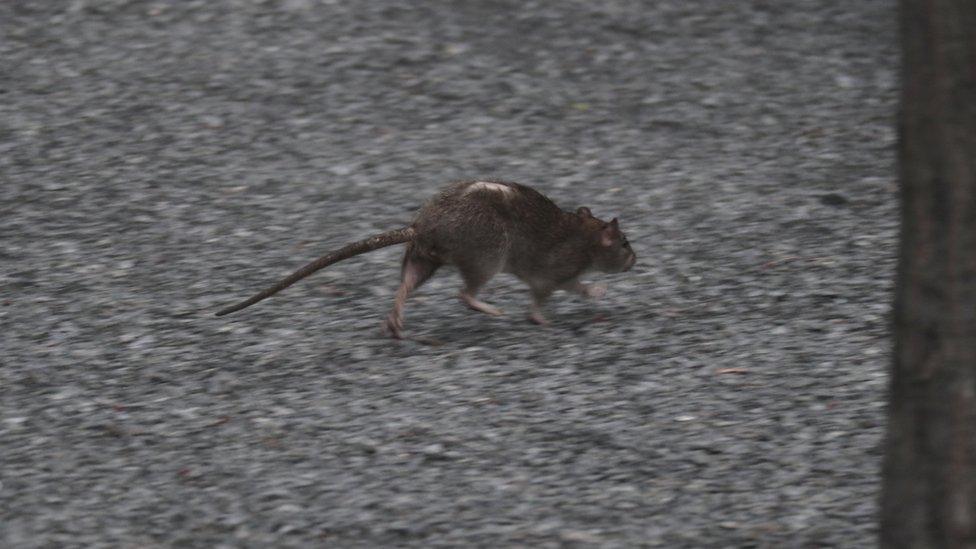
Rats are coming out of hiding to seek food
"It's an animal you just do not want to let it close to us and definitely want top let it get intimate with us in our own kitchens," he says.
How to keep rats out of homes
One way to help rat- proof your home is to seal any areas - like cracks and holes near the foundation, or utilities and pipes - where rodents can get inside.
Indoors, make sure there are few places they can hide, and keep areas clear from clutter. Keep food in rodent-proof containers.
If you do find yourself with rats in the house, Dr Corrigan suggests calling in professionals.
"If you do see rats all of a sudden on your property as a result of this coronavirus pandemic, that is not a job for do-it yourself."
- Published24 October 2019

- Published23 October 2019
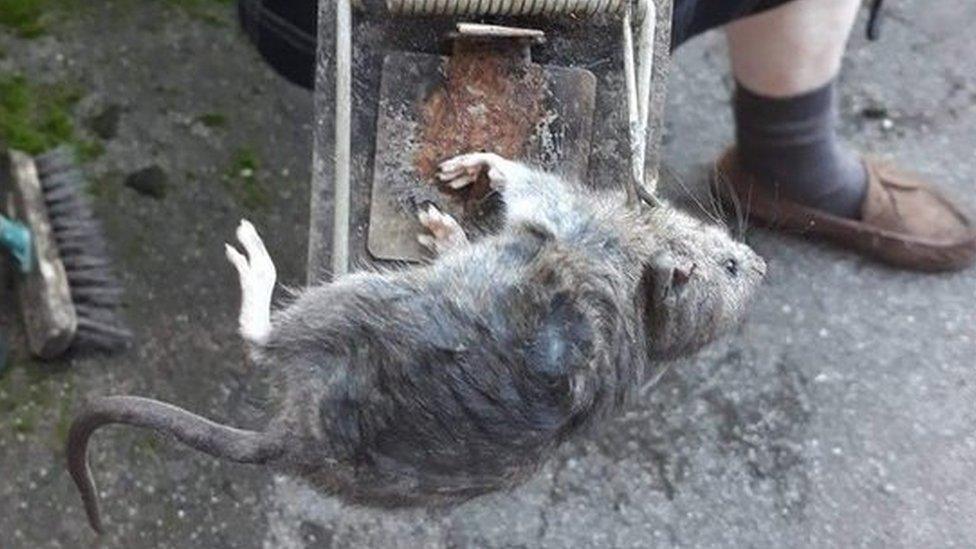
- Published17 October 2019
